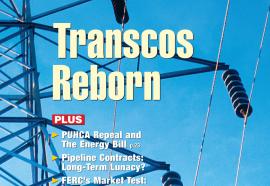One Fine Reliability Mess
Infrastructure isn't keeping pace. So how to "help" the market without killing it?
What's the right price signal to bring forth enough infrastructure to maintain reliability over the long haul? Moreover, if such a model exists, can it work without stifling competitive markets?










